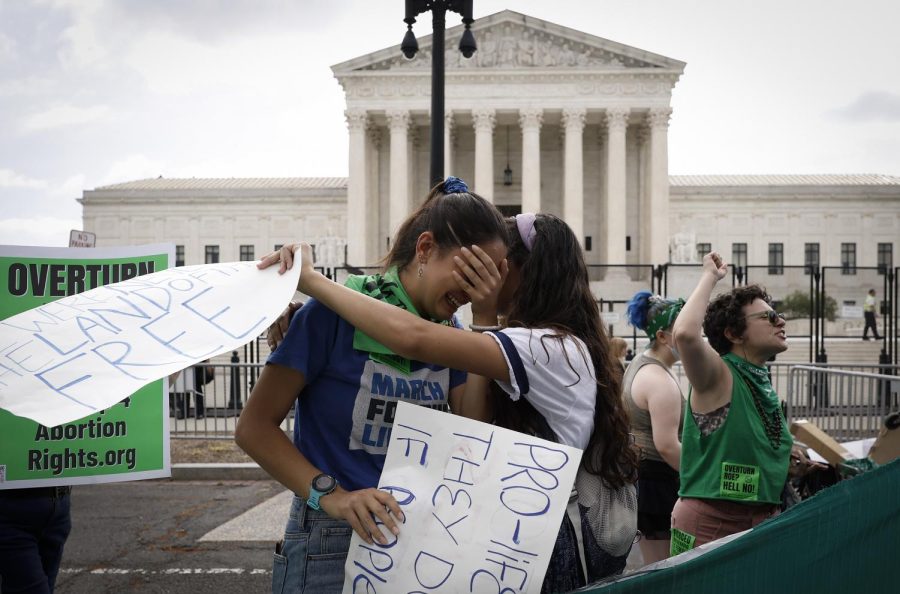Supreme Court overturns Roe v. Wade
A month after a leaked draft opinion, the Supreme Court effectively ends federal abortion protections in a 5-4 decision
Anna Moneymaker / Getty Images / TNS
Activists react to the Dobbs v Jackson Women’s Health Organization ruling which overurns the landmark abortion Roe v. Wade case in front of the U.S. Supreme Court on June 24 in Washington, DC.
June 24, 2022
On Friday, June 24, the U.S. Supreme Court made the decision to overturn Roe v. Wade, ending nearly half a century of protected, federal abortion rights. This means that it will be up to the states to set their own limits and restrictions on abortions.
In May, Politico published a leaked draft of the Supreme Court’s opinion on Roe v. Wade. Written by Justice Samuel Aloito, the draft explained the Supreme Court’s view and reasoning on the case and what they planned to do.
“We hold that Roe and Casey must be overruled,” Alito wrote, “Roe was egregiously wrong from the start. Its reasoning was exceptionally weak, and the decision has had damaging consequences.”
However, not all the Supreme Court Justices agree with Alito. Five justices voted to overturn Roe and Casey while three voted to uphold it. One justice says he would not have overturned the case, but would agree with some states abortion restrictions.
“With sorrow — for this Court, but more, for the many millions of American women who have today lost a fundamental constitutional protection — we dissent,” wrote Justices Stephen Breyer, Sonia Sotomayor and Elena Kagen.
President Joe Biden released a statement on the court’s ruling explaining how he believes this is a step backwards for America.
“It’s a sad day for the country, in my view,” said Biden, “The court has done what it’s never done before, expressly take away a constitutional right that is so fundamental to so many Americans…The court’s decision to do so will have real and immediate consequences.”
Although the Supreme Court’s overturning of the case does not make abortionas illegal nationwide, many states will act quickly on the decision.
“Trigger laws” have been passed in 13 states, meaning that abortion would almost immediately be banned once Roe is no longer in place. This does require an official to certify Roe has been struck down before the “trigger ban” can take place.
“In Illinois we’ve planned for this terrible day,” said Governor JB Pritzker, “We passed the Reproductive Health Act, enshrining choice as the law of the land in Illinois. We removed the trigger law that would have prohibited abortion in Illinois with the overturbing of Roe v. Wade.”
The Court’s decision will not end legal abortions in Illinois, as the state has had a law in place since 2019 that would keep abortion legal even if Roe was overturned.











